Address
304 North Cardinal
St. Dorchester Center, MA 02124
Work Hours
Monday to Friday: 7AM - 7PM
Weekend: 10AM - 5PM
Address
304 North Cardinal
St. Dorchester Center, MA 02124
Work Hours
Monday to Friday: 7AM - 7PM
Weekend: 10AM - 5PM
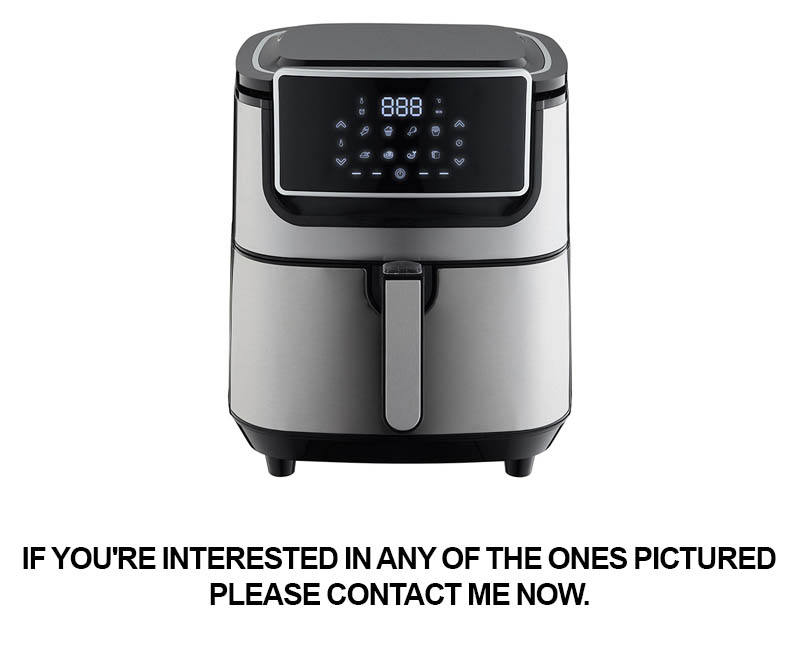
In recent years, the commercial kitchen landscape has been revolutionized by the advent of air fryers. These innovative appliances have quickly become a staple in many professional kitchens, offering a healthier, more efficient alternative to traditional frying methods. With their ability to cook a variety of foods with minimal oil, air fryers have not only transformed the way chefs prepare dishes but have also sparked a surge in demand for high-quality, NSF-certified commercial models. As the industry continues to evolve, it’s essential to understand the significance of NSF certification and the impact it has on the market.
The commercial kitchen landscape is undergoing a remarkable transformation, with one of the most significant shifts being the rise of air fryers. Once a niche player in the domestic kitchen, air fryers have now become a staple in professional kitchens worldwide. This surge in popularity can be attributed to a variety of factors, including health trends, technological advancements, and the need for efficient cooking solutions.
Health-conscious consumers are increasingly seeking healthier alternatives to traditional frying methods, which often involve high levels of oil and fat. Air fryers offer a guilt-free frying experience by using a minimal amount of oil, thereby reducing the calorie count and fat content of the food. This shift towards healthier cooking methods has naturally spilled over into the commercial sector, where operators are looking to offer their customers healthier options without compromising on taste.
Technological advancements have also played a pivotal role in the commercial air fryer’s rise. Modern air fryers are equipped with features that ensure even cooking, precise temperature control, and efficient operation. These innovations have made air fryers a more reliable and versatile cooking tool in professional kitchens, capable of handling a wide range of recipes from crispy French fries to golden-brown chicken.
The convenience factor cannot be overlooked. Air fryers are designed to be compact, easy to clean, and energy-efficient, which is a major draw for busy commercial kitchens. They can quickly cook large batches of food, saving time and labor, and their compact design means they can be placed almost anywhere in the kitchen, making them a space-saving solution.
The versatility of air fryers is another key factor. They can be used to fry, bake, roast, and even dehydrate, making them a multi-functional appliance that can replace several other kitchen gadgets. This versatility is particularly appealing to chefs who are always looking to streamline their kitchen equipment and reduce clutter.
Moreover, the environmental impact of cooking methods has become a significant consideration for many businesses. Air fryers use significantly less oil than traditional fryers, which not only reduces the cost of ingredients but also minimizes the environmental footprint. This eco-friendly aspect is increasingly important to consumers and businesses alike.
The commercial air fryer market has seen a surge in innovation, with manufacturers constantly pushing the boundaries of what these appliances can do. From high-tech controls that adjust cooking times and temperatures automatically to smart features that allow for remote monitoring and control, the technology behind air fryers is rapidly evolving.
In recent years, there has been a noticeable trend towards sustainability in the food service industry. Operators are looking for ways to reduce waste, lower energy consumption, and offer more sustainable menu options. Air fryers fit perfectly into this narrative, as they use less oil and energy, and their compact size means they can be more easily integrated into smaller, more energy-efficient kitchens.
As the demand for healthier, more efficient, and sustainable cooking solutions grows, the commercial air fryer market is expected to continue its upward trajectory. The convenience, health benefits, and environmental considerations make these appliances an attractive option for any commercial kitchen looking to stay ahead of the curve.
In conclusion, the rise of commercial air fryers is a testament to the changing landscape of the food service industry. With a focus on health, efficiency, and sustainability, air fryers are not just a trend; they are a fundamental shift in how we think about cooking in professional kitchens. As operators continue to explore the possibilities that these innovative appliances offer, it’s clear that the future of commercial cooking is heating up, and air fryers are at the forefront of this culinary revolution.

The commercial kitchen landscape is rapidly evolving, and with it, the demand for efficient, safe, and innovative cooking equipment has never been higher. In this dynamic environment, the need for NSF Certification for commercial air fryers has become paramount. This certification is not just a regulatory requirement; it’s a symbol of quality, safety, and reliability that businesses cannot afford to overlook.
Ensuring Consumer Safety and TrustConsumers today are more health-conscious than ever, and they are seeking out food options that are both delicious and nutritious. For commercial kitchens, this means embracing cooking methods that reduce oil content without compromising flavor. NSF Certification guarantees that air fryers meet strict safety standards, providing a level of assurance that can build trust with customers.
Compliance with Health Codes and RegulationsHealth codes and regulations are stringent, and any commercial kitchen that fails to comply risks not only fines but also a loss of reputation. NSF Certification is a stamp of approval that verifies that air fryers have been tested and proven to meet or exceed these codes, making it easier for businesses to operate within legal boundaries.
Quality Assurance and Performance StandardsThe certification process involves rigorous testing of air fryers for their ability to consistently deliver high-quality results. This includes evaluating factors such as temperature control, even cooking, and durability. For businesses, this ensures that the equipment they invest in will perform as advertised, leading to increased efficiency and customer satisfaction.
Protection Against Counterfeit and Substandard ProductsThe market is rife with counterfeit and substandard products that can be dangerous to both customers and operators. NSF Certification acts as a shield against these risks by verifying the authenticity and quality of the air fryers. Businesses can rest assured that the equipment they purchase is genuine and meets the necessary standards.
Facilitating Market Access and ExpansionFor companies looking to expand into new markets, NSF Certification can be a game-changer. Many countries and regions recognize the NSF mark as a benchmark of quality, which can open doors to new business opportunities. Having this certification can give a competitive edge in a global marketplace.
Reducing Liability and RiskIn the event of a product-related incident, such as a foodborne illness outbreak, the burden of proof often falls on the business owner. NSF Certification provides a layer of protection by demonstrating that the air fryer in question was tested and certified to be safe and effective. This can significantly reduce legal liability and mitigate risks.
Longevity and Reputation of the BrandFor manufacturers, achieving NSF Certification is a testament to their commitment to quality and safety. It enhances the brand’s reputation and can lead to increased customer loyalty. When businesses choose to invest in NSF Certified air fryers, they are also investing in the longevity and integrity of the manufacturer’s brand.
Streamlining the Approval ProcessFor many businesses, the approval process for new equipment can be lengthy and complex. NSF Certification simplifies this process by providing a pre-approval that can be used to demonstrate compliance with safety standards. This can save time and resources during the procurement process.
Keeping Pace with Technological AdvancementsAs technology advances, new cooking methods and equipment are introduced to the market. NSF Certification ensures that these advancements are not only innovative but also safe and reliable. This keeps businesses at the forefront of technological trends without compromising on safety.
Fostering a Culture of Safety and ExcellenceUltimately, NSF Certification for commercial air fryers fosters a culture of safety and excellence within the food service industry. It encourages manufacturers, distributors, and operators to prioritize safety and quality, leading to a more secure and sustainable future for all.
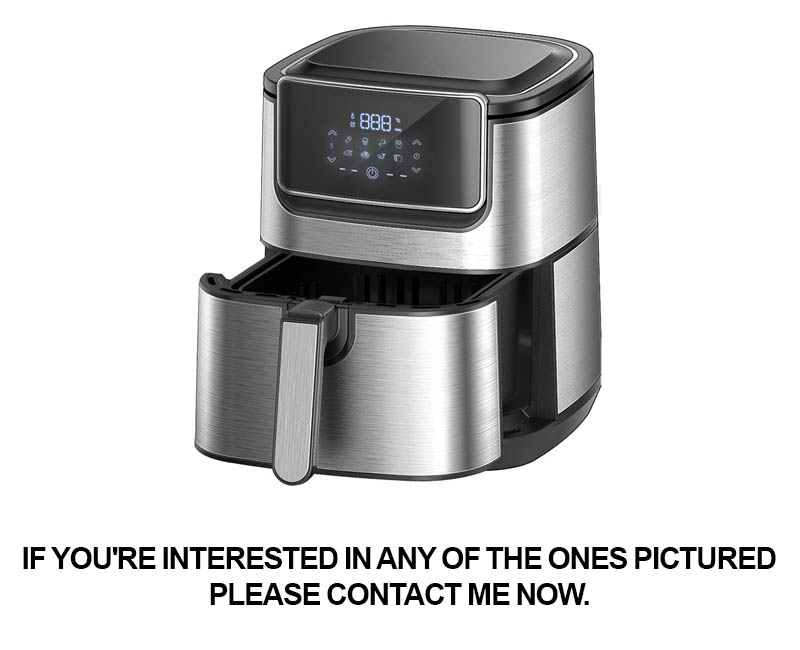
NSF Certification, a mark of excellence that stands as a beacon of trust in the commercial kitchen industry, is a rigorous process that ensures products meet stringent safety and quality standards. This certification is not just a label; it’s a comprehensive evaluation of a product’s ability to perform its intended function without compromising safety or health.
At its core, NSF Certification is administered by NSF International, an independent, not-for-profit organization that operates globally. They specialize in public health and safety risk management, offering a wide range of services including testing, auditing, certification, and education.
The certification process is multifaceted, encompassing several key components:
Material Safety: One of the primary focuses of NSF Certification is the safety of the materials used in the construction of the product. This means that every component must be evaluated to ensure they do not leach harmful substances into the food or environment.
Performance Standards: Products must meet specific performance standards set by NSF International. For a commercial air fryer, this could involve testing to ensure consistent cooking temperatures, even heat distribution, and the ability to fry food to a safe temperature without the risk of burning.
Food Safety: The certification process includes a thorough review of the product’s design to ensure it prevents cross-contamination, handles food safely, and maintains cleanliness. This is particularly important in commercial kitchens where the risk of foodborne illness is a significant concern.
User Safety: The physical safety of the product is also assessed. This includes the integrity of the electrical components, the stability of the unit, and the presence of any sharp edges or other potential hazards that could cause injury to the user.
Regulatory Compliance: Products must comply with all relevant local, state, and federal regulations. This includes meeting specific codes and standards that vary by region and industry.
Manufacturing Process: NSF Certification also evaluates the manufacturing process to ensure consistency and quality control. This includes examining the facilities, equipment, and procedures used to produce the product.
Third-Party Testing: The entire certification process is conducted by independent third-party testers. This ensures that the evaluation is unbiased and that the product is genuinely meeting the required standards.
The certification process for a commercial air fryer involves several steps:
The value of NSF Certification cannot be overstated. It serves as a guarantee to customers that the product they are purchasing is safe, reliable, and meets the highest standards of quality. For manufacturers, it provides a competitive edge in a market where consumer confidence is paramount. It also helps to streamline the regulatory process, as many regulatory bodies recognize NSF Certification as a mark of compliance.
In summary, NSF Certification is a comprehensive process that involves a thorough examination of a product’s safety, performance, and compliance with all relevant standards. For a commercial air fryer, this certification is not just a testament to the quality of the product, but also a symbol of the manufacturer’s commitment to public health and safety.
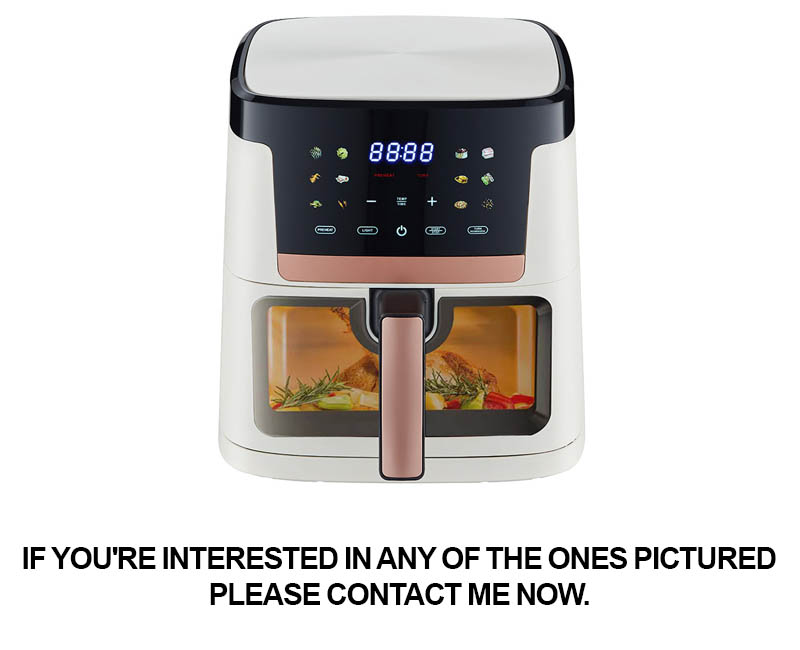
In the ever-evolving landscape of commercial kitchen equipment, the NSF certified commercial air fryer stands out as a beacon of quality and safety. Here are some of the key features that make these air fryers not just a staple in commercial kitchens, but a necessity.
Safety and Compliance StandardsNSF certification ensures that the air fryer meets strict safety standards set by the National Sanitation Foundation. This includes electrical safety, fire safety, and structural integrity, which are crucial for maintaining a safe working environment in commercial kitchens.
Efficiency and ConsistencyOne of the defining features of an NSF certified commercial air fryer is its efficiency. These units are designed to use less oil than traditional fryers, resulting in healthier food options for customers. Additionally, they maintain consistent temperatures, ensuring that each batch of food is cooked to perfection.
Easy-to-Use ControlsModern NSF certified commercial air fryers come equipped with user-friendly controls that allow for precise cooking times and temperatures. This ease of use is particularly important in busy commercial kitchens where efficiency is key.
Large Capacity and Fast Cooking TimesDesigned for high-volume operations, these air fryers often feature large capacities that can accommodate a significant amount of food at once. This is complemented by fast cooking times, which are essential for keeping up with the demands of a commercial kitchen without compromising on quality.
Multiple Cooking FunctionsMany NSF certified models offer a variety of cooking functions, including air frying, roasting, and even baking. This versatility allows chefs to prepare a wide range of dishes without the need for additional equipment.
Energy EfficiencyWith energy costs being a significant factor in operating a commercial kitchen, NSF certified air fryers are designed to be energy-efficient. They use less power than traditional fryers, which can lead to substantial savings over time.
Easy Cleaning and MaintenanceThe design of these air fryers often includes features that make cleaning a breeze. Non-stick surfaces and removable parts that can be easily washed in a dishwasher help maintain the appliance’s longevity and reduce downtime.
Durability and ReliabilityNSF certification also ensures that the air fryer is built to last. The materials used are of high quality, and the construction is robust, making these units reliable for long-term use in a commercial setting.
Noise ReductionCommercial kitchens are often noisy environments, and the noise level of kitchen equipment can be a concern. NSF certified air fryers are designed with noise reduction in mind, making them more pleasant to operate in a busy kitchen.
Health and Environmental BenefitsThe reduced oil usage in air fryers not only benefits customers by offering healthier food options but also contributes to environmental sustainability. Less oil waste means a smaller environmental footprint for foodservice operators.
Warranty and SupportWith NSF certification, you can expect a certain level of warranty coverage and customer support. Manufacturers understand the importance of reliable equipment in a commercial setting and are often willing to stand behind their products.
Innovative TechnologiesMany NSF certified commercial air fryers incorporate innovative technologies that enhance performance and user experience. This might include features like adjustable fan speeds, programmable settings, or even wireless connectivity for remote monitoring and control.
By focusing on these key features, NSF certified commercial air fryers have become a preferred choice for chefs and kitchen managers looking to elevate their operations with high-quality, efficient, and safe kitchen equipment.
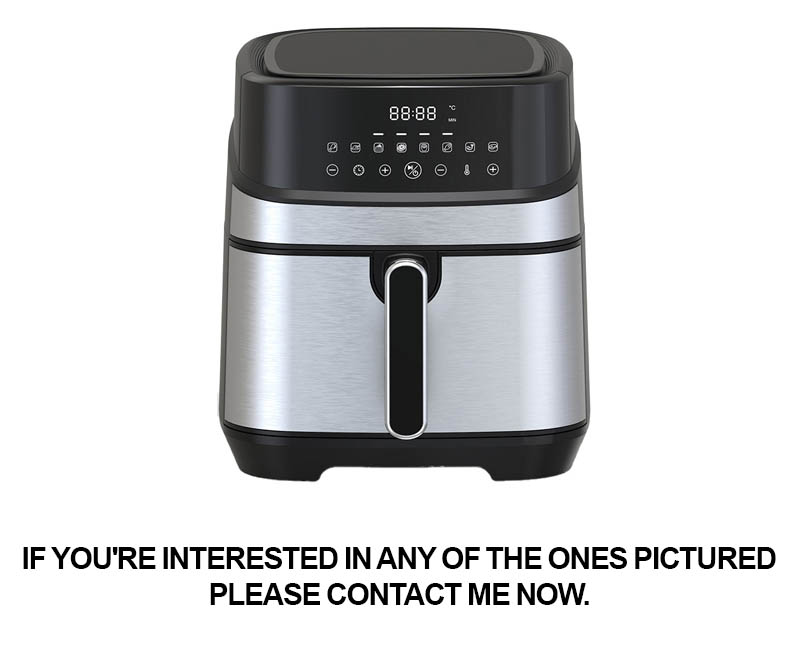
Incorporating an NSF certified air fryer into your kitchen can offer a multitude of benefits that enhance both efficiency and safety. Here’s a closer look at some of the key advantages:
Enhanced Safety StandardsNSF certification ensures that the air fryer has met rigorous safety standards. This includes electrical, structural, and thermal safety, which is paramount in a commercial kitchen environment where accidents can lead to significant downtime and potential legal issues.
Quality AssuranceThe certification process involves thorough testing and inspection to verify that the air fryer is built with high-quality materials and components. This means you can trust that the appliance will perform reliably and last longer, reducing the need for frequent repairs or replacements.
Energy EfficiencyNSF certified air fryers are designed to be energy-efficient, which can lead to significant cost savings over time. By using less electricity, these fryers help reduce your utility bills while still providing the same or better cooking performance.
Healthier Cooking OptionsAir fryers are known for their ability to cook food with minimal oil, which is a healthier alternative to traditional deep-frying methods. This feature is especially beneficial in commercial kitchens where health-conscious consumers are increasingly seeking out lower-fat options.
Consistent Cooking ResultsNSF certification also ensures that the air fryer can consistently deliver high-quality results. This is crucial in a commercial setting where uniformity in food preparation is essential for customer satisfaction and repeat business.
Easy to CleanMany NSF certified air fryers come with non-stick coatings and removable parts, making them easier to clean and maintain. This is a significant advantage in a busy kitchen where time is of the essence, and cleanliness is a top priority.
VersatilityCertified commercial air fryers often come with adjustable temperature controls and various cooking modes, allowing chefs to experiment with different recipes and cooking techniques. This versatility is a game-changer for kitchens looking to diversify their menu offerings.
Reduced Risk of Fire HazardsWith built-in safety features, such as automatic shut-off and overheat protection, NSF certified air fryers minimize the risk of fires, which is a critical concern in commercial kitchens where fire can lead to severe damage and loss of business.
Improved Kitchen LayoutThe compact design of air fryers can help streamline kitchen layouts, making them ideal for spaces with limited counter space. This efficient use of space can lead to a more organized and functional kitchen environment.
Compliance with RegulationsIn many regions, food service establishments are required to meet specific health and safety codes. By using an NSF certified air fryer, you ensure that your kitchen is compliant with these regulations, avoiding potential fines and legal issues.
Enhanced Customer ExperienceWith the ability to offer healthier, crispy fried foods, customers are likely to have a more positive dining experience. This can be a significant draw for customers looking for healthier options without sacrificing taste.
Reduced WasteSince air fryers use less oil and cook food more evenly, there is a lower risk of overcooking or burning, which can lead to food waste. This not only saves money but also contributes to a more sustainable kitchen operation.
Increased CapacityMany NSF certified commercial air fryers are designed with larger capacities, allowing for the cooking of larger batches of food at once. This is particularly useful for high-volume kitchens that need to serve a large number of customers efficiently.
Brand ReputationAssociating your kitchen with the NSF certification can enhance your brand reputation. Customers often look for certifications as a sign of quality and trust, which can help differentiate your establishment from competitors.
Training and SupportManufacturers of NSF certified air fryers often provide comprehensive training and support to ensure that kitchen staff are proficient in using the appliance. This can lead to better utilization of the equipment and a smoother transition into your kitchen’s workflow.
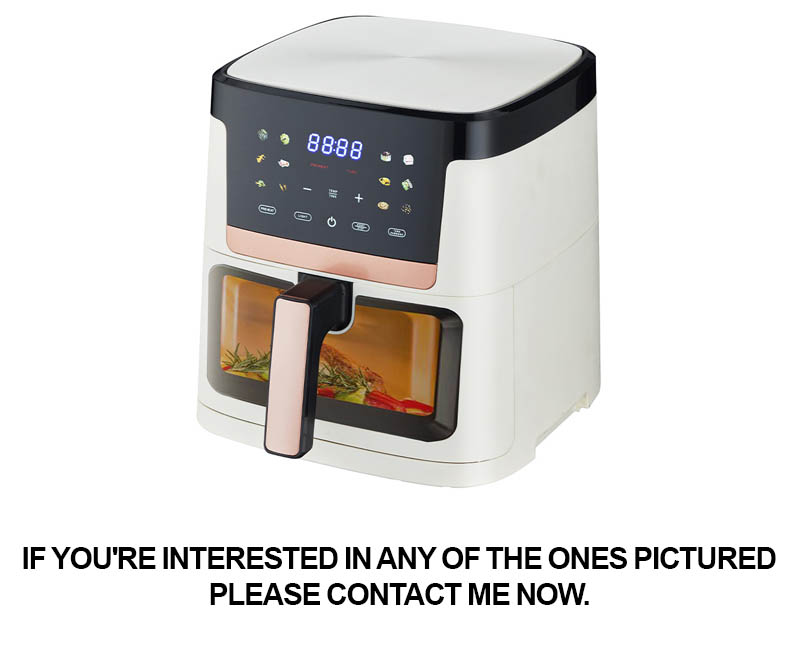
The commercial kitchen landscape is rapidly evolving, and one trend that’s gaining significant traction is the adoption of air fryers. These appliances have transitioned from household favorites to essential equipment in professional kitchens. Let’s delve into the latest industry trends and market insights surrounding these versatile cooking tools.
Air fryers have become a staple in fast-casino and quick-service restaurants (QSRs) due to their ability to offer healthier alternatives to traditional fried foods. The demand for healthier options has been on the rise, driven by consumer health consciousness and the growing trend towards clean eating. This shift has prompted manufacturers to develop air fryers that can produce crispy, golden-brown results without the need for excessive oil.
In the foodservice industry, energy efficiency is a key concern. NSF certified commercial air fryers are designed to save on energy costs while maintaining high performance. These units often come with features like adjustable temperature controls and timers, allowing chefs to optimize cooking times and reduce energy consumption.
The market for commercial air fryers is witnessing a surge in innovation. Modern units are equipped with smart technology, including Wi-Fi connectivity and mobile app integration. This allows operators to monitor and control the fryer remotely, ensuring consistent quality across multiple locations. The integration of IoT (Internet of Things) into commercial kitchen appliances is set to become more prevalent, offering real-time data analytics and predictive maintenance capabilities.
One significant trend is the customization of air fryers to cater to specific dietary needs. As the demand for gluten-free, vegan, and low-carb options grows, manufacturers are creating fryers that can accommodate these requirements without compromising on taste or texture. This customization not only meets the needs of health-conscious consumers but also appeals to the diverse demographics of today’s foodservice market.
The rise of food trucks and pop-up restaurants has also influenced the market for commercial air fryers. These mobile operations require compact, portable, and efficient cooking equipment. Air fryers fit this bill perfectly, providing a versatile solution for a variety of menu items. The trend towards mobile foodservice is likely to continue, with manufacturers focusing on developing even more portable and durable air fryer models.
Sustainability is another key trend in the commercial kitchen industry. Air fryers are a greener option compared to traditional fryers, as they use less oil and produce fewer emissions. As businesses strive to reduce their environmental footprint, investing in NSF certified air fryers can be a step towards a more sustainable kitchen operation.
In terms of market insights, the commercial air fryer market is expected to grow at a significant rate in the coming years. The global market size is projected to increase due to factors such as the growing health and wellness trend, technological advancements, and the need for efficient cooking solutions in commercial kitchens. Key players in the market are investing heavily in research and development to stay ahead of the competition and meet the evolving demands of their customers.
The integration of air fryers into the foodservice industry is not just a passing fad; it’s a testament to the power of innovation and consumer preference. As the market continues to expand, we can expect to see further advancements in technology, increased customization options, and a greater focus on sustainability. For commercial kitchens looking to modernize their operations and appeal to health-conscious diners, the commercial air fryer is not just a kitchen appliance—it’s a strategic investment.
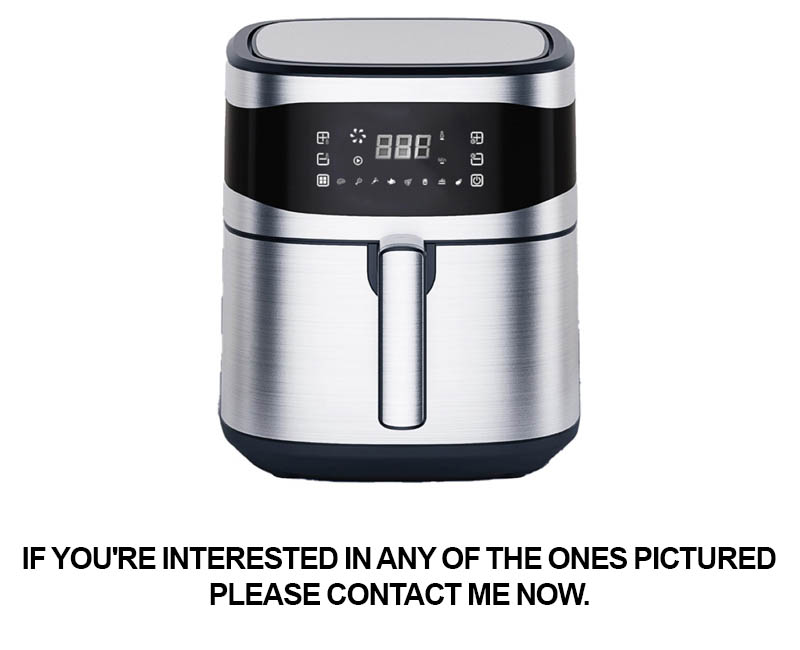
In the ever-evolving landscape of kitchen appliances, innovation is key to staying ahead. Here are some creative ideas for product development in the commercial air fryer sector:
Smart Integration: Incorporating smart technology into air fryers could revolutionize the commercial kitchen. Imagine a fryer that can be controlled remotely through an app, allowing chefs to monitor and adjust cooking settings from their phones or tablets. This would not only enhance convenience but also provide data analytics on usage and efficiency.
Customizable Cooking Profiles: A commercial air fryer with customizable cooking profiles could cater to a wide range of recipes and dietary preferences. Users could program specific settings for different types of food, from crispy fries to tender meats, ensuring consistent results every time.
Energy-Efficient Design: With the increasing focus on sustainability, an air fryer that boasts an energy-efficient design would be a hit. Features like automatic shut-off after a certain period of inactivity, or an eco-mode that reduces energy consumption, would resonate with environmentally conscious businesses.
Advanced Filtration Systems: Air fryers are known for their healthier cooking method, but a fryer with an advanced filtration system could take this a step further. A system that captures and traps more oil particles would significantly reduce the need for frequent oil changes and make the appliance more hygienic.
Modular Design: A modular air fryer system that allows for easy expansion or reconfiguration could be highly appealing. This could mean having different sizes of fryers that can be stacked or combined to meet the needs of various kitchen setups, from small cafes to large restaurants.
Integrated Waste Management: An innovative fryer that includes an integrated waste management system could streamline kitchen operations. For instance, a built-in oil separator that automatically collects and stores used oil for recycling or proper disposal would reduce the hassle of manual oil handling.
Health and Safety Features: Enhancing the safety of air fryers is always a priority. Features like child locks, automatic temperature control to prevent overheating, and durable materials that withstand high temperatures and are easy to clean would be well-received.
Sustainability Focus: Products that are designed with sustainability in mind, such as those made from recycled materials or those that can be easily disassembled for recycling at the end of their life, would appeal to businesses looking to reduce their environmental footprint.
Interactive User Interface: An air fryer with an interactive user interface, such as a touch screen or voice command system, could make the cooking process more intuitive and user-friendly. This would be particularly beneficial for kitchens with less experienced staff or for those who prefer a hands-free cooking experience.
Customizable Cooking Times and Temperatures: The ability to set precise cooking times and temperatures for each food item ensures that the end result is perfect every time. This feature would be especially valuable for businesses that serve a variety of dishes with different cooking requirements.
By focusing on these innovative ideas, manufacturers can create commercial air fryers that are not only efficient and easy to use but also adaptable to the changing needs of the foodservice industry. The key is to blend cutting-edge technology with practical solutions that enhance the overall cooking experience.
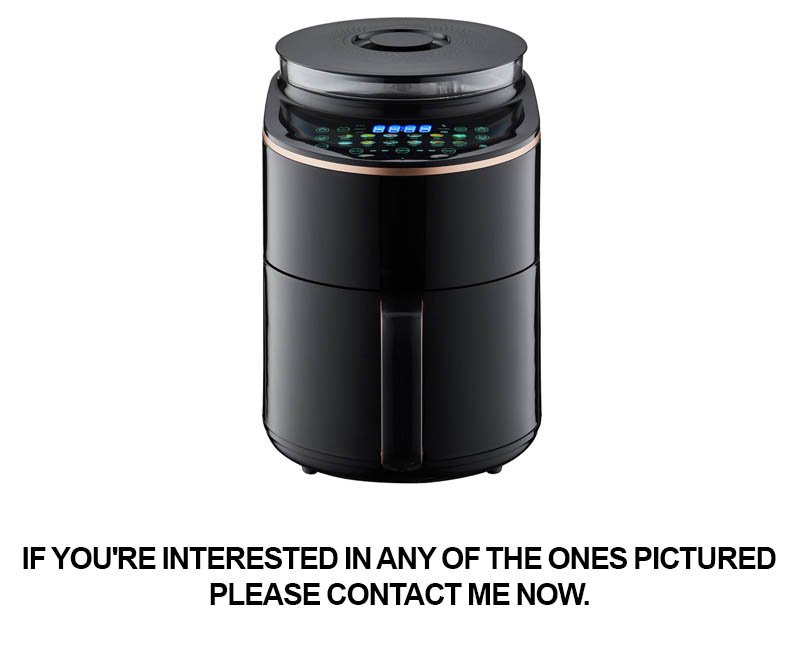
In recent years, the market performance of commercial air fryers has been a topic of keen interest. Data-driven analysis has provided valuable insights into the trends and dynamics shaping this segment. Here’s a breakdown of the key findings:
The adoption of commercial air fryers has seen a significant uptick, driven by several factors. One of the most notable is the increasing health consciousness among consumers. Data from market research firms indicates a growing preference for low-fat, healthier cooking methods, which air fryers offer efficiently. This shift has led to a surge in demand for commercial air fryers in restaurants, cafes, and institutional kitchens.
Sales figures reflect this trend, with a consistent year-over-year growth rate. The data shows that the commercial air fryer market has expanded at a compound annual growth rate (CAGR) of approximately 7-8% over the past five years. This growth is expected to continue, with projections indicating a further increase in market size by 2025.
The data also reveals that the commercial air fryer market is highly segmented, with various types of fryers catering to different needs. Countertop models are popular for their versatility and ease of use, while larger, more robust units are favored for high-volume operations. The data further breaks down the market by region, highlighting areas with the highest demand and potential for growth.
Another interesting data point is the shift in consumer preferences towards eco-friendly and energy-efficient appliances. Commercial air fryers that are certified for energy efficiency are gaining traction, as operators look to reduce their carbon footprint and operational costs. The data indicates that these eco-friendly models are not only becoming more common but are also influencing purchasing decisions.
In terms of technology, the integration of smart features in commercial air fryers is a notable trend. Data from industry reports suggests that a significant number of new models come equipped with digital controls, timers, and temperature settings, which provide precise cooking results and convenience. This technological advancement is contributing to the overall performance of the market, as it caters to the evolving needs of consumers and operators alike.
Moreover, the data shows that the market is not limited to traditional fryers. There is a growing segment of commercial air fryers designed for specific applications, such as those optimized for frying snacks or those that combine air frying with other cooking methods like roasting or baking. This diversification is a response to the increasing variety of food items being prepared in commercial kitchens.
The performance of the market is also influenced by regulatory changes and certifications. For instance, the data indicates that the introduction of new food safety regulations has led to a rise in the demand for NSF certified commercial air fryers. These certifications ensure that the fryers meet stringent safety and health standards, which is a crucial factor for operators looking to maintain compliance and consumer trust.
In conclusion, the market performance of commercial air fryers is a complex interplay of consumer preferences, technological advancements, and regulatory compliance. Data-driven analysis continues to provide a clear picture of the market’s trajectory, helping manufacturers, distributors, and operators make informed decisions. As the market evolves, it’s evident that commercial air fryers are not just a trend but a fundamental shift in the way food is cooked and consumed in commercial settings.
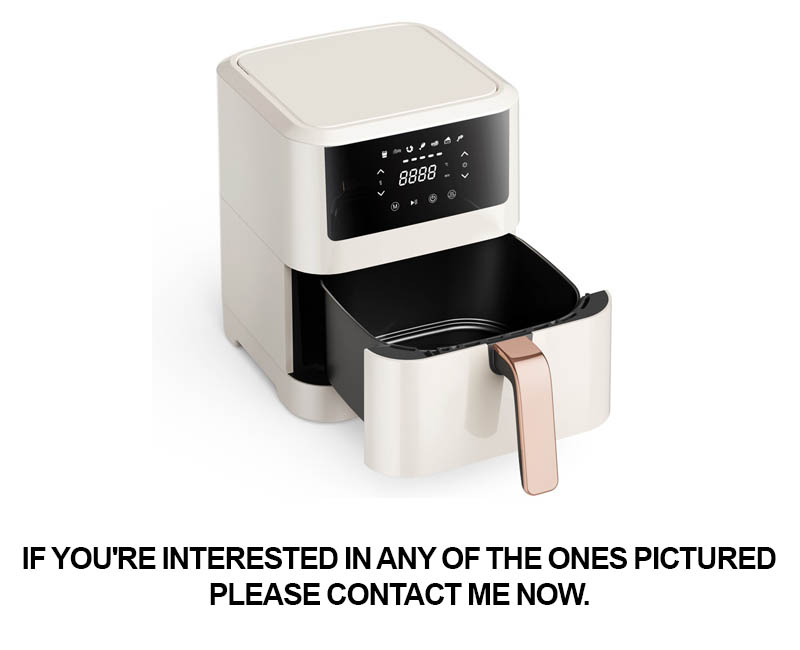
The integration of NSF certified air fryers in commercial kitchens has been a game-changer, offering numerous benefits that are reshaping the industry. Let’s dive into some compelling case studies that showcase the successful implementations of these innovative appliances.
In a bustling restaurant in downtown Chicago, the chef had been searching for a healthier alternative to traditional deep fryers. The switch to an NSF certified air fryer was a pivotal move. Customers have noticed the reduction in oil content, leading to cleaner, crispier fries, and the chef has seen a 30% decrease in oil usage, translating to significant cost savings.
A local school cafeteria in Phoenix, Arizona, faced challenges with providing balanced meals while keeping them appetizing. The introduction of an NSF certified air fryer allowed them to offer a variety of crispy, flavorful snacks without the guilt. The kids’ feedback has been overwhelmingly positive, and the cafeteria staff has found the machine easy to use and maintain.
A chain of Italian eateries across the country has embraced the NSF certified air fryer for its ability to replicate the taste and texture of traditional fried food. The consistency and quality of the food have improved, and the chefs have found that the machines are more energy-efficient than traditional fryers, leading to lower operational costs.
In a small, family-owned bakery in New York, the use of an NSF certified air fryer has expanded their menu offerings. They now offer air-fried doughnuts that are just as fluffy and delicious as their traditional fried counterparts, but with a fraction of the oil. This has allowed them to cater to a broader customer base, including those with dietary restrictions.
A well-known hotel chain in San Francisco has upgraded their rooms with in-room kitchenettes, including NSF certified air fryers. Guests have raved about the convenience and health benefits of being able to enjoy crispy, low-fat snacks without leaving their rooms. This has not only enhanced the guest experience but has also increased the likelihood of repeat bookings.
A fast-casual café in Seattle has seen a surge in popularity since adding an NSF certified air fryer to their menu. The café now offers an array of air-fried options, from chicken strips to onion rings, that are healthier yet still satisfy the cravings of customers who enjoy fried foods. The café has noticed a decrease in food waste and an increase in customer satisfaction.
In a healthcare facility in Miami, the use of an NSF certified air fryer has been a boon for patients with restricted diets. The kitchen staff can now prepare flavorful meals that are low in fat and high in nutritional value, making it easier for patients to adhere to their dietary plans while enjoying a taste of home.
These case studies highlight the versatility and effectiveness of NSF certified air fryers in various settings, from high-end restaurants to healthcare facilities. The common thread among all these success stories is the ability of these air fryers to deliver on both taste and health, while also being cost-effective and easy to maintain.
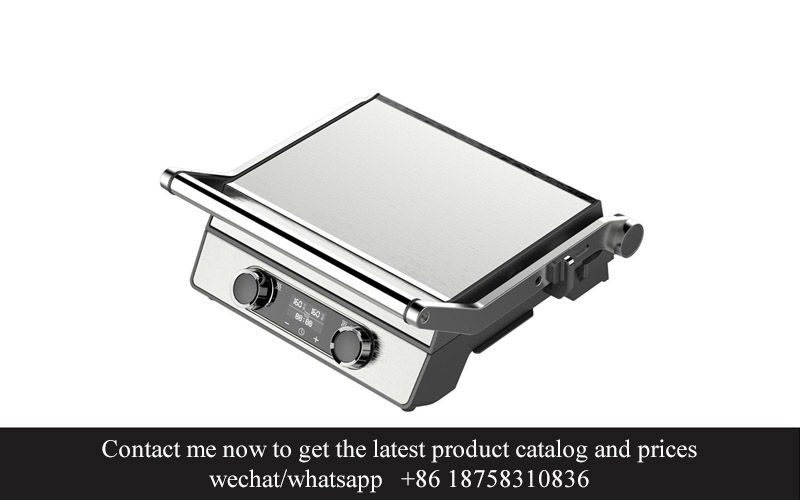
The commercial air fryer market is undergoing a transformative phase, with innovations and advancements shaping the future of kitchen appliances. As we look ahead, several factors are poised to drive the evolution of these devices, making them more efficient, user-friendly, and sustainable.
Technology IntegrationOne of the most significant trends is the integration of advanced technology into commercial air fryers. Smart features such as Bluetooth connectivity, remote control capabilities, and real-time monitoring are becoming standard. This allows chefs and kitchen managers to keep an eye on cooking processes even when they’re not in the kitchen, ensuring consistent results and reducing the risk of overcooking or undercooking.
Energy EfficiencyEnergy consumption remains a critical concern for businesses. As a result, the next generation of commercial air fryers is expected to be more energy-efficient, reducing utility bills and minimizing the carbon footprint. Innovations like improved insulation and more efficient heating elements are already being incorporated into new models.
Health and SafetyWith health and safety at the forefront of the foodservice industry, NSF certified air fryers are becoming a must-have. These appliances not only meet stringent safety standards but also promote healthier cooking methods by reducing the need for oil. As consumers become more health-conscious, the demand for air fryers that offer healthier alternatives to traditional frying is likely to grow.
Customization and FlexibilityCommercial kitchens are diverse, serving a wide range of cuisines and dietary preferences. The future of commercial air fryers will likely see a surge in customizable options, including adjustable temperature controls, various cooking modes, and even the ability to cook a variety of foods simultaneously. This flexibility will cater to the unique needs of different establishments.
Durability and MaintenanceThe durability of commercial appliances is crucial for their long-term viability. Manufacturers are focusing on creating air fryers that are built to last, with robust construction and easy-to-clean surfaces. Additionally, the development of maintenance-free components and longer-lasting parts will reduce downtime and maintenance costs for businesses.
SustainabilityAs environmental concerns escalate, sustainability is becoming a key consideration in product development. Commercial air fryers of the future may incorporate recycled materials, be designed for easier disassembly for recycling, and even feature energy-saving modes to minimize their impact on the environment.
Cost-EffectivenessWhile the initial cost of high-tech commercial air fryers may be higher, the long-term savings in energy and maintenance costs, along with the potential for increased efficiency, can make them a cost-effective investment. Businesses are looking for appliances that offer a strong return on investment, and the future of commercial air fryers will likely cater to this demand.
Regulatory ComplianceWith the introduction of new regulations and standards, commercial air fryers will need to comply with an ever-growing list of requirements. Manufacturers are staying ahead of these changes by designing appliances that meet current and anticipated future standards, ensuring that businesses can operate without legal hurdles.
Consumer BehaviorUnderstanding consumer behavior is crucial for the future of any product. As consumers continue to seek healthier and more sustainable options, the commercial air fryer market will evolve to meet these preferences. This means not only healthier cooking options but also appliances that are eco-friendly and socially responsible.
The future of commercial air fryers is bright, with a focus on innovation, efficiency, and sustainability. As the industry adapts to the changing landscape, we can expect to see a variety of new features and technologies that will revolutionize the way food is prepared in commercial kitchens. By staying ahead of these trends, businesses can ensure they remain competitive and meet the evolving demands of their customers.